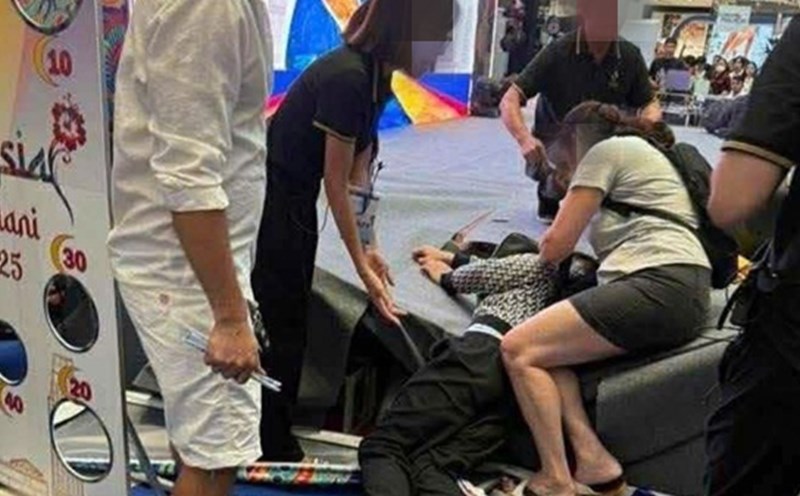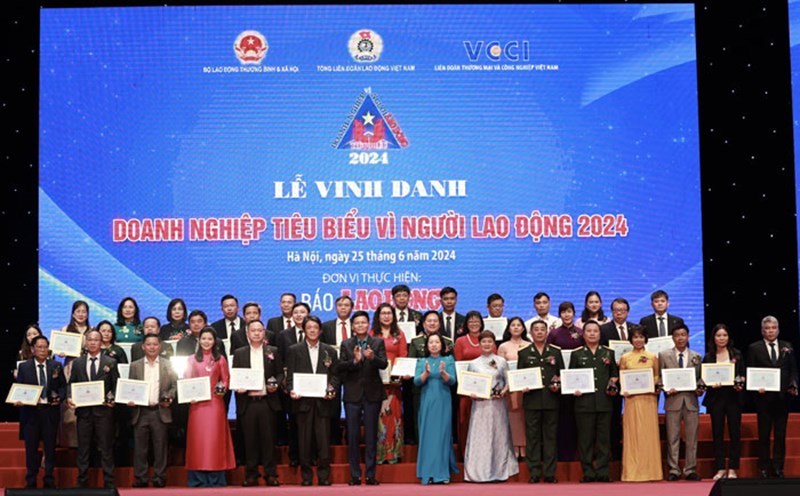Prioritize emotions or brands?
A few years ago, for Ms. Teng Jiayuan, 32, a luxury goods specialist in Shanghai (China), owning a Chanel Classic Flap bag was a big dream. She saved a large amount of savings to "squeeze" that bag worth 6,500 USD. But just a few times when I brought it out, the bag gradually lay still in the closet, as a sad testament to the empty feeling after the short-lived joy.
"The bag made me feel proud for a moment. But then I realized that it was not suitable for everyday life - going to work, jogging, reading... I bought it not because I needed it, but because I wanted others to see it. Buying this bag has caused my savings account to decrease significantly, she shared.
New thinking makes Teng change her shopping habits. She said that she rarely shop for luxury goods now, instead choosing health care classes, short trips or combining fashion items available in the closet - things that bring her lasting joy in her soul.
Jiayuan's story is not unique. Michelle Ni, 49, was a "branded goods customer" in China, "My back has to be Celine, Montblanc and Tiffany silver jewelry" - Ni said, explaining that she was drawn to the invisible values of luxury goods in enhancing her personal value and identity. However, she started to get bored. The last item she bought was a Dior Saddle bag, worth thousands of USD, which was only used 3 times - not as good as a phone or a makeup bag. Now she values style over material. "Luxury will always be a part of my life, but now I approach it with a calmer and more purposeful mindset," she added.
Ms. Yasmeen Khan, 31, founder of a financial knowledge platform in Canada, is also a typical example. As her income increased, she felt increasingly pressured to show her success to the world through shopping for luxury goods. But when she stopped to reflect, she realized that the urge did not originate from joy or personal value. When I accepted that my value did not come from what I own, I no longer felt the desire to shop for luxury goods. Im starting to focus more on saving, investing, and building spiritual values, such as personal health and creating new memories with my children, the mother of three shared.
These changes in thinking reflect a broader trend taking place in the global luxury market, which is currently facing significant fluctuations in the context of increasingly complex times.
The international luxury goods industry is facing its biggest shock in at least the past 15 years, according to the Global Luxury goods Research of Bain & Company. The study, published in June 2025, noted that luxury spending around the world is under increasing pressure due to weakened consumer confidence amid economic fluctuations, geopolitical and trade tensions, currency and financial fluctuations.
Young people and new thinking about luxury goods consumption
Today's youth, especially Gen Z, have a completely different approach to luxury consumption. Born in the digital age, growing up amid climate crisis, economic uncertainty and global pandemics, they have become a sensitive but practical generation.
If in the past, people bought branded goods to show their class, then Gen Z chose to buy them to enjoy. They don't necessarily need a pair of shoes called Dior, as long as those shoes help them go all day without pain in their feet. They do not seek luxurious meals to show off photos, but a memorable experience with personal value.
Dr. Junqiu Jiang from ESSEC Business School Asia - Pacific commented that young consumers are no longer interested in showing off their wealth. Instead, they want to express their own lifestyle and taste.
Gen Z is pursuing a new concept: meaningful luxury - emotional experiences. It could be a peaceful vacation, a yoga class, a famous kitchen dinner, or a unique handicraft. Value does not lie in the recognition of others, but in true satisfaction.
For them, personalization, brand ethics and real experience are gradually replacing outstanding logos. Therefore, brands that know how to tell stories and listen are dominating. Hermes organizes a handmade class in Tokyo, Loewe opens an art workshop in Seoul, and Louis Vuitton opens a Michelin restaurant in Bangkok. Luxury, now, can be a memorable experience rather than an expensive item.
The used brand market also flourished thanks to Gen Z. "Hunting" for unique vintage items brings a feeling of satisfaction - not only because of their rarity, but also because of the sustainability and humanity factor. For example, a young person can find a 90s Gucci Jackie bag on the reselling page instead of choosing a new item.
According to experts from KPMG Consulting Services Company, brands need to develop in two directions: both maintaining monopoly for high-end customers and expanding products to make them more accessible while still maintaining their identity.
While Western consumers are gradually tightening spending, Southeast Asia has become a bright spot in the luxury market. Reports from data analysis company Euromonitor International show that: Singapore, Indonesia, Vietnam and Thailand all recorded impressive growth.
In Singapore, thanks to high income and vibrant shopping tourism, more than 300,000 people own assets worth over 1 million USD - a figure forecast to continue to increase. In Ho Chi Minh City, collections that have only appeared in Paris or Tokyo are now present in the city's central shopping malls. In Thailand, the Icon Siam center specializing in branded goods is a symbol.
A young businesswoman in Singapore shared: "I still buy branded goods, but no longer because I want to keep up with someone. Each dish I choose is associated with a milestone in my life - promotion, a special trip... That is a reward for myself, not to prove anything".
The luxury industry is now like a new playground - where expensive items are no longer a destination, but a means to live deeper, more authentically. Faced with that transformation, brands are also forced to have a strategy to change and adapt.










